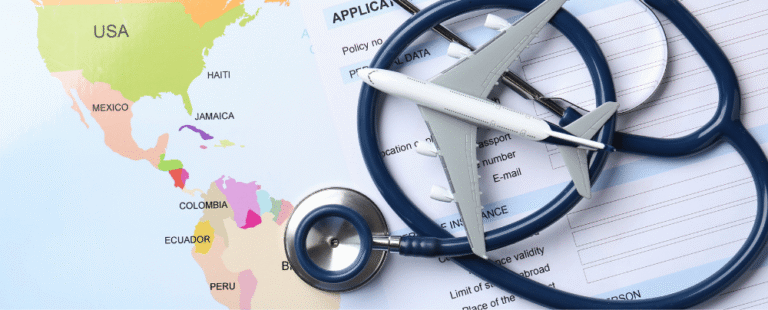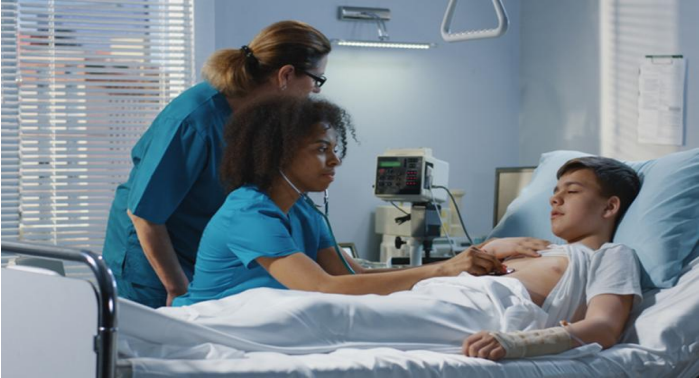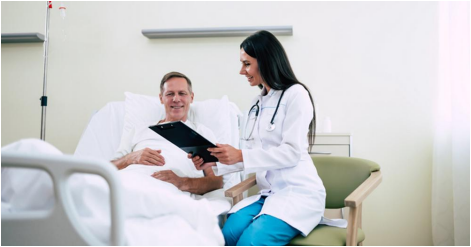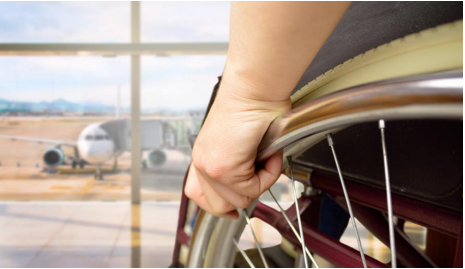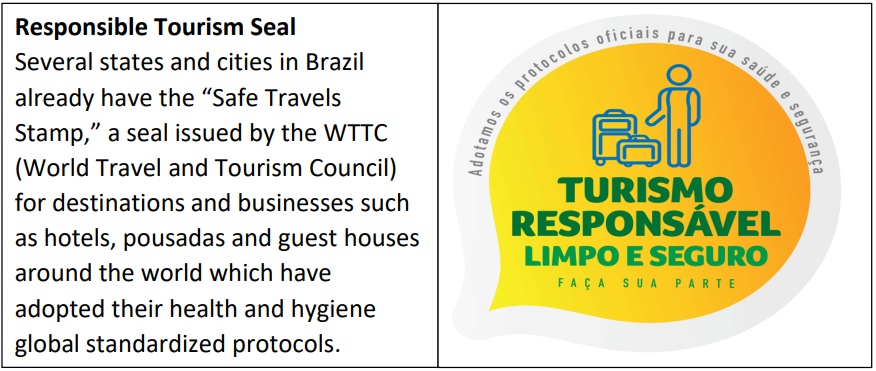Since its emergence as a sought-after service niche, medical tourism has
become one of Brazil’s fastest-growing industries, a global role reflected in the
sophistication of its physicians, surgeons and medical facilities.
According to the Medical Tourism Association, about 14 million people in the
world travel to other countries in search of medical care annually.
According to statistics of Patients Beyond Borders Brazil receives about 300,000
patients seeking medical treatment annually.
- 51 JCT accredited hospitals and institutions
- International recognition for outstanding services in the cosmetic surgery field
- High-quality standards of healthcare services in private hospitals and clinics
- Ultramodern technologies and renounced medical expertise of the
practitioners
- Dentistry with an outstanding reputation for orthopedics, sports medicine,
bariatric surgery, and assisted reproduction
- Cost-effective healthcare system. At the moment Brazil is competing only with
Asia in providing medical treatments at low costs and with excellence.
What is JCI hospital accreditation?
The Joint Commission International (JCI) is a U.S based accreditation body
dedicated to improving healthcare quality and safety around the world.
Brazil was the first country with an institution outside the United States to be
accredited by the Joint Commission International in 1999 when the program
was launched. In Brazil doctors and medical professionals are highly qualified
and many of them have studied abroad acquiring international recognition and
experience. Why more and more medical tourists are heading to Brazil.
By reading this document will give you insight into why more and more people
are choosing Brazil as the destination to receive treatment.
According to the World Health Organization, Brazil has the best healthcare
system in Latin America and ranks among the top countries, for the same, in the
world. This has led to the phenomena of health tourism in this country that has
seen a major boom in the recent years.
Brazil has always been an alluring international destination and it is world
famous for its beautiful scenery. It has also gained notoriety for its cosmetic
surgeons and plastic surgery packages.
Brazil is only behind USA in terms of number of plastic surgeries performed and
is also recognized as the “World Capital of Cosmetic and Plastic Surgery”.
However, the number of cosmetic and plastic surgeries per capital is higher than
in the USA. This way, Brazilian plastic surgeons have a considerable higher
number of surgeries performed than other plastic surgeons from around the
world.
What began as a curiosity and desire for cosmetic surgery has now opened the
doors for medical tourists to receive other medical treatments, such as
orthopedic surgeries, cardiac surgeries, fertility treatment, hair transplant,
cosmetic surgeries, plastic surgery, dental treatments, dermatology, fertility
treatment, general surgery, neurosurgery, Ophthalmology, obesity surgery,
oncology.
Why choose Brazil as a destination for travel and treatment?
Medical tourism to Brazil is expected to grow 45% in the next five years,
benefiting from the country’s investment in infrastructure, hotels and airports
and the influx of international visitors.
Brazil is making major investments in its infrastructure and tourism, Brazilian
authorities are trying to showcase the country in a successful light and working
hard to transform and reinforce the country’s image by turning it into a major
tourism destination. This tourism boost will also greatly benefit the medical
tourism industry.
Its attractiveness as a tourism destination is enhanced by its quality and
affordable healthcare, friendly and warm people, great food, and paradisiacal
beaches.
Medical Facilities in Brazil
Medical Facilities in Brazil are equivalent with hospitals in the United States,
with some even exceeding American standards. Brazil offers everything from
large, full service hospitals to smaller, intimate private clinics. Brazil has
developed into a center of excellence for healthcare in Latin America, with
major universities that support research, teaching and training of medical
professionals. Outside of the United States, Albert Einstein Hospital in São Paulo
was the first to be accredited by JCI, the most recognized healthcare
certification group.
Although prices can vary considerably depending on the treatment and facility
chosen, international visitors are drawing to Brazil because of its high quality
treatment at low prices, often considerably lower than European countries.
A fierce competition between hospitals in the private sector has led to a
constant improvement in the knowledge and skill set of the medical staff. In
addition, English is increasingly becoming the medium of conversation as
hospitals are attempting to attract the medical tourists. The hospitals offer
renowned treatment through high tech technology in a diversity of fields.
In Brazil, after a medical student completes his/her residence, he/she have to
appear before medical examiners of the Conselho Federal de Medicina
(Brazilian Federal Counsel of Medicine) a licensing body before he/she is given
the title of a specialist. This ensures that specialists in Brazil have true insight of
their profession.
While the general public mainly speaks Portuguese, demands by medical
tourists for English speaking personnel in hospitals have been on the rise. This
has led to developments in English speaking skills of the medical staff. There are
also a number of translational services that hospitals provide for the sake of a
smooth conversation between doctors and patients.
Hospitals and Doctors Standards in Brazil
Brazil’s success in private healthcare delivery has led to fierce competition with
doctors trying to constantly upgrade their skills, their certifications and their
medical facilities.
In the field of plastic surgery, for instance, Brazil is recognized worldwide as a
hub for great professionals.
Brazil had developed a system for forming great healthcare professionals
including strict government oversight in licensing for schools, licensing for
professional practice, and norms and standards of practice set by medical
societies and councils.
The Brazilian Medical Association, a non-profit organization with more than
140,000 associates, serves to defend the dignity of the medical professional and
quality of care to the health of the population.
Some of its private hospitals such as the Sociedade Hospital Samaritano,
launched by a group of international doctors, had gone a long way to provide a
leading role in Brazil’s medical tourism.
A multi-level certification and scrutiny process is in place for medical institute
graduates before they are licensed to practice medicine in Brazil.
This ensures quality of the health care givers, surgeons, physicians, etc.
The staff in most private hospitals is well versed in English to cater to patients
from all around the world.
Medical Procedures Commonly Practiced in Brazil
Plastic and reconstructive surgery is a reconstruction of part of the human
body, whether due to medical or esthetic reasons, restoring physical function
and minimizing deformities
• Facial plastic surgery/rhytidoplasty: reduces the more visible signs of aging
through the removal of excess fat, repositioning of the musculature and
removal of excess face and neck skin
• Eyelid plastic surgery/blepharoplasty: removal of the excess of skin and fat
that can accumulate on the upper and lower eyelids, by means of carefully
positioned incisions
• Neck plastic surgery: reduces the skin flaccidness and localized fat below the
chin
• Nose plastic surgery/rhinoplasty: can improve nasal function, correct defects
present at birth, fix respiratory problems or improve facial harmony
• Ear plastic surgery/otoplasty: corrects the excessive prominence and can
better define the cartilaginous curves, thus improving facial esthetics
• Chin plastic surgery/mentoplasty: to correct advanced or retracted chins
• Breast plastic surgery/mammoplasty: breast reconstruction or the reduction
of or increase in breast size, correction of any asymmetries or flaccidness
• Plastic surgery for reducing male mammas/gynecomastia: corrects the
pronounced mammary gland that, due to hormonal changes or obesity, causes
discomfort, both esthetic and emotional, for a man
• Arm plastic surgery/brachioplasty: reduces the flaccidness of skin in the arms,
with the removal of excessive skin as well as fat from the lower region of the
arms, thus improving the local contour
• Thigh plastic surgery/crural listing: diminishes skin flaccidness in the internal
area of the thighs
• Gluteus plastic surgery/gluteoplasty: increases or reshapes the backside
• Abdomen plastic surgery/abdominoplasty/dermolipectomy: reduces skin
flaccidness, fat accumulation and muscular weakness in the abdomen
• Plastic surgery for formerly obese individuals: reshaping or removal of excess
tissue for those who have undergone weight-loss surgery and had significant
weight loss
• Liposuction: surgery that suctions and removes the excessive fat from certain
parts of the body. It is performed through minimal incisions
• Liposculpture: the targeted removal of excess fat followed by the injection of
some of this fat in other locations
Bariatric surgery (for weight loss): for morbidly obese people; surgery to reduce
the amount of food a patient can ingest or digest
• Restrictive surgery - adjustable gastric band by videolaparoscopy: consists of
placing a band or ring around the stomach, thus reducing the capacity for eating
food, creating a "small stomach"
Disabsorptive surgery by videolaparoscopy: decreases the absorption capacity
of the intestine, except for a part of the intestine through which food passes
• Gastric bypass, roux-en-y or restrictive disabsorptive surgery (Capella) by
videolaparoscopy: division of the stomach to create a smaller one, then
attachment of the new stomach to the intestine
• Intragastric balloon: it is a silicone prosthesis introduced into the stomach
through endoscopy.
It is used in minor cases of obesity or overweight persons who do not want to
undergo more invasive surgery. The balloon can remain in place for up to six
months
Ophthalmology: specialty of medicine that treats eyes diseases, both clinically
and surgically
• Laser surgery: corrects and reduces some ocular problems, improving vision
quality
• Myopia: a visual deficit making it difficult to see objects that are far away
• Hypermetropia: occurs when the eye is smaller than normal, causing focusing
difficulties on objects close to the eye
• Astigmatism: distorted vision and difficulty focusing which is generally caused
by an irregularity of the cornea
• Cataract: clouding of the crystalline lens of the eye resulting in the blurring of
vision
Dentistry: the evaluation, diagnosis, prevention and/or treatment of diseases,
disorders and/or conditions of the oral cavity, maxillofacial area and/or the
adjacent and associated structures and their impact on the human body
Check-Up: comprises a complete health examination to detect diseases (and
conditions), such as cardiac disorders, high pressure (hypertension) and
diabetes before they become clinically apparent
Assisted reproduction (fertility): advanced techniques that aid
fertilization/pregnancy
Cardiology: the branch of medicine that deals with disorders of the heart and
blood vessels
Dermatology: the branch of medicine that deals with the skin and its diseases
Neurology: the branch of medicine that deals with diagnosing and treating
diseases involving the central, peripheral and autonomic nervous system
Oncology: the branch of medicine that studies tumors (cancer) and plans and
administers the care of cancer patients
Orthopedic surgery: is the branch of surgery concerned with conditions
involving the musculoskeletal system
Sports Medicine: a medical field specializing in preventing, diagnosing and
treating injuries related to participating in sports and/or exercise, specifically
the rotation or deformation of joints or muscles caused by engaging in such
physical activities.
The primary focus is the rapid recovery of patients
Urology: focuses on the urinary tract of men and women, and on the
reproductive system of males
Your next vacation with medical treatment in Brazil
Planning your next vacation around your medical procedure may not be at the
top of your list, but it should be.
Brazil has many beautiful resorts and hotels that cater to individuals recovering
from medical procedures. Medical tourism gives you the flexibility to plan and
schedule anything from a minor checkup to a major surgery whenever it is convenient for you and your loved ones. Studies have shown people who take
vacations have lower stress, less risk of heart disease, a better outlook on life,
and more motivation to achieve goals.
Vacationing with a medical trip to Brazil will prove to be very rewarding and will
provide you with positive life long memories.
Process for Medical Tourist visa in Brazil
A Medical Tourist Visa is basically required for people traveling to this country
for some medical treatments. Currently, temporary visa is available for the
foreigners under this category, but it should be valid to enter the country for
medical assistance.
A foreigner must have a valid passport of validity up to 6-months after arriving
in the country. Some country residents are given a tourist visa on arrival and
later they can seek medical treatment in the country.
This visa is available only for 90-days. However, the limit can be extended to
another 90-days once in 12-months’ time
Some travel tips for Medical Tourists in Brazil
This country is full of lip-smacking dishes that shouldn’t be skipped, like Pão de
Queijo, Feijoada, Moqueca, Acarajé with vatapá, Galinhada, Farofa and
Escondidinho de frango com mandioca are some dishes you must try.
Brazil is a one-stop shop for savvy shoppers.
At local shops and the supermarkets enjoy buying many items which are
certainly cheaper than your own country.
Always keep a photocopy of valid passport. Personal safety is another important
thing to consider about Brazil, given the frequency of thefts in some regions.
Things to keep in Mind
Language barriers are prominent in the country. The general public only speaks
Portuguese and you might have a hard time looking for a translator. Thanks to
medical tourism, many private hospitals in Brazil have invested in providing
translator services.
The traffic in major cities can be tiresome at times. Hence, when making a trip
to your hospital, leave the hotel in time or consider booking a hotel as close as possible to the hospital.
How to get around?
Car rentals are available but they are relatively expensive. Plane rides are
another viable option; they minimize travel time by a lot. Taxis are a reasonable
ride, and preferable during the night time. In addition, big cities like Rio and Sao
Paulo have metro facilities that are very convenient. Avoid taking public buses.
Insurance, medical malpractice and liability
Most Brazilian hospitals accept worldwide international medical insurance.
Contact the hospital and the insurance company directly for details regarding
coverage.
Most insurance plans do not yet cover costs of specific treatment abroad (when
a policy holder travels for the sole intention of having surgery in another
country). Policies are evolving and the insurer should be consulted for the latest
information on coverage abroad.
Brazil's exposure to western influences has increased the local sensitivity to
issues related to medical malpractice and liability.
This influence has attributed to the increase in malpractice lawsuits against
physicians and hospitals in Brazil. In response, new types of insurance coverage
that include medical liability were made available to protect private hospitals,
medical groups and health professionals in Brazil.
When choosing a hospital or a surgeon in Brazil, medical tourists should make
sure the health practitioners are covered against medical liability lawsuits.
Since May 21 2023 there is no longer any health restriction related to Covid-19
for travelers to enter Brazil.
With the end of the health emergency of international importance announced
by the World Health Organization (WHO), the National Health Surveillance
Agency – Anvisa no longer requires presentation of vaccination or tests for entry
into the country.
Climate
The climate in Brazil varies considerably from mostly tropical north (the equator
traverses the mouth of the Amazon) to temperate zones south of the Tropic of
Capricorn.
Temperatures below the equator are high, averaging above 28 °C but not
reaching the summer extremes of up to 40 °C in the temperate zones.
There is little seasonal variation near the equator other than the rainfall
frequency. Average temperatures below the Tropic of Capricorn are mild,
ranging from 13 °C to 22 °C.
Pharmacies
Brazilian pharmacies are wonderful six of the top ten companies in the Brazilian
pharmaceutical market are domestic.
Each has a licensed pharmacist who is trained to deal with small medical
emergencies and can make recommendations for treatment.
The service is free and medication is fairly inexpensive.
If you take medication that may need replacement while in Brazil, ask your
doctor to write out the active ingredients of the prescription, as many drugs are
sold under different trade names in Brazil.
Many drugs available by prescription in many other countries are available overthe-counter in Brazil.
Pharmacies are aiming to provide even more services such as blood pressure
and diabetes check, bio impedance analysis, vaccinations, quick laboratory
exams (like COVID Tests), injectable application and others.
Important items to bring with you include
First-aid kit - 1% hydrocortisone cream, Antibacterial or antifungal ointments,
Digital thermometer, Oral rehydration salts, Antiseptic wound cleaner, Insect
bite anti-itch gel or cream, Bandages, Disposable gloves, Cotton swabs,
Tweezers and Eye drops.
Medical Papers - Medical papers and records are a necessity and should be at
the top of your list of things to pack. Just to be safe, it is always a good idea to
have extra copies.
Prescriptions, Health insurance documents, Vaccinations, Medications.
General Documents - Copies of your passport and travel documents, Contact
card with the street addresses, phone numbers, and e-mail addresses of: Family
member or close contacts in your home country.
Health care provider(s) at home, Hotel at your destination, Hospitals, clinics and
medical facilitator (including emergency services), your country embassy or
consulate in Brazil.
Passports and Visas - Keep your passport close at all times and have some
foreign currency on hand for incidentals.
The first thing that should be done during the planning stage is to check the
rules for passports in different countries and read them carefully.
In addition to a passport, you may require to have a visa too. You should always
check with the embassy to see if this is a requirement for Brazil.
Currency - Exchanging currency is easier done ahead of time when you can
exchange it at a trusted institution in your hometown, getting the best rates.
If you wait until you are out of your element on foreign soil, you may not fare as
well financially when you exchange foreign currency.
It’s always a good idea to get bills in smaller denominations so there is no
problem using them and getting change for low cost items.
Credit Card Alerts - Credit card limits should be checked ahead of time so you
are sure to bring the ones you need.
It is also a good idea to let the credit card companies know where you will be, so
there is no risk of having them block a transaction for “security reasons.”
Travel Companion - Lastly, it is sometimes recommended depending on your
disposition and treatment that you bring a trusted companion with you on your
medical tourism trip.
Could be a benefit in case of emergencies.
They will also be beneficial to have someone to keep you company during
recovery and assist you during the trip back home.
Using a medical tourism facilitator - Medical tourist facilitator can help a
potential patient ensure they choose an appropriate hospital and doctor for the
procedure they plan to undergo.
Services provided by a facilitator can include:
• Recommendations for medical care providers (hospitals, clinics, surgeons and
doctors), accommodation, travel and tourism, as well as estimates of potential
costs
• Personal assistance and multilingual staff
• Preparation of a total budget for client approval
• Airport pickup and transportation, pre-op accommodation
• Assistance before, during and after hospitalization with 24-hour availability
(via the telephone)
• Pre-arranging all dates and accompanying a patient to doctor consultations
and pre-op exams
• Arrangements for direct admission to the hospital/clinic for surgery
• Arrangements for post-operative care
Conclusion - After your healthcare treatment and once you are well enough to
travel, you are encouraged to take time to explore all that Brazil has to offer as a
vacation hotspot! All in all, Brazil is an excellent option when it comes to
medical tourism, coupled with providing dual opportunity of vacationing in one
of the most pristine countries, medical tourism in Brazil has become a booming
industry.
Jan / 2022 – migjonela.com.br
